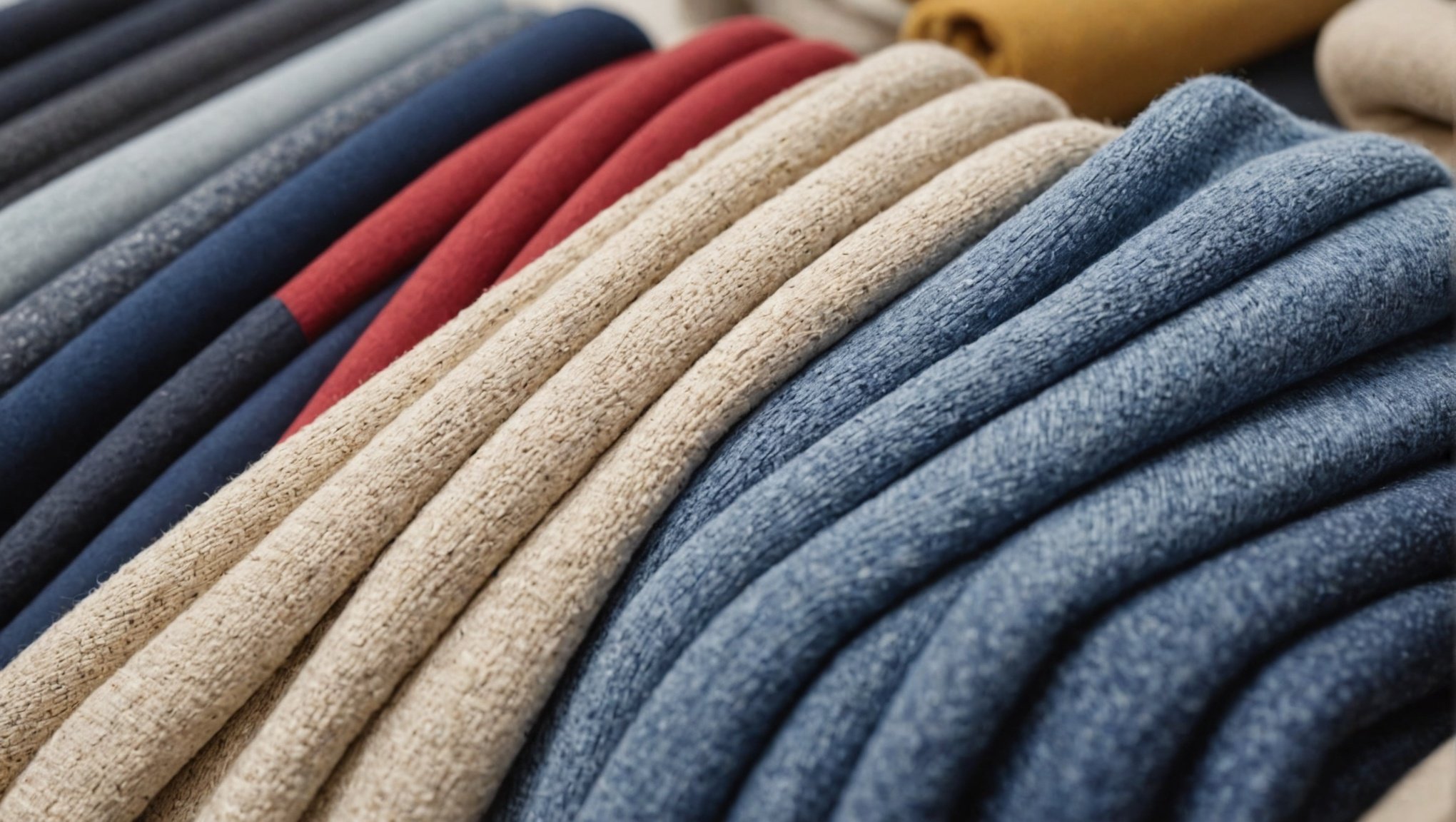When it comes to selecting the best fabrics for sensitive skin, it’s crucial to prioritize comfort, breathability, and minimal allergenic potential. The UK market offers a diverse range of materials to choose from. But how do you know which is the most suitable for your or your loved ones’ skin, particularly if it is prone to conditions such as eczema?
Your skin is a protective barrier against environmental hazards, and its health can significantly impact your overall well-being. Thus, choosing clothing materials that are gentle and soothing can make a world of difference. Here are some of the best fabrics available in the UK that are ideal for sensitive skin.
Also read : What Minimalist Accessories Should You Use to Complement a Busy Print Dress in the UK?
Organic Cotton: A Breathable Choice
Cotton is widely regarded as one of the best fabrics for sensitive skin. And when it is organic, its benefits are amplified. A staple in the clothing industry, cotton’s popularity is due to its softness, breathability, and robustness.
Organic cotton is grown free from synthetic pesticides and fertilizers, which can be harsh on sensitive skin. Its hypoallergenic nature reduces the risk of skin irritation, making it an excellent choice for individuals with skin conditions such as eczema.
In parallel : How to Choose the Perfect Leather Jacket for a Rock Concert in Birmingham?
With a vast array of organic cotton clothes, from t-shirts and dresses to baby clothing and sheets, the UK presents various options for you to buy. When shopping, look for certified organic labels to ensure you’re getting the real deal.
Bamboo: The Eco-Friendly Option
Bamboo has emerged as a popular material for clothing, particularly among environmentally-conscious consumers. This renewable, fast-growing plant is transformed into a soft, breathable fabric that rivals the comfort of cotton and silk.
What makes bamboo truly remarkable is its hypoallergenic properties. The fabric is naturally resistant to dust mites and mold, which can trigger skin irritations. Moreover, it possesses excellent moisture-wicking capabilities, keeping your skin dry and less prone to rashes.
The UK market offers a variety of bamboo clothing options, from underwear and socks to pyjamas and workout outfits. Bamboo sheets are also gaining popularity, offering a cool, comfortable sleep environment for those with sensitive skin.
Wool: Look for the Merino Variety
While wool might not be the first material that comes to mind for sensitive skin, not all wool is created equal. Merino wool, in particular, is a game-changer. It’s far softer and finer than regular wool, reducing the likelihood of itchy discomfort.
Merino wool’s natural breathability and moisture-wicking properties make it an outstanding choice for workout gear and cold-weather clothing. It also has the added bonus of being naturally flame-resistant, making it a safe option for children’s clothing.
While merino wool items can be pricier than other materials, their durability and premium comfort make them a worthwhile investment. Numerous UK brands offer merino wool products, from athletic wear to high-quality winter gear.
Silk: The Luxurious Choice
When you think of luxury in clothing, silk often comes to mind. This natural protein fiber is celebrated for its smooth texture and lustrous sheen. But beyond its aesthetic appeal, silk also boasts several benefits for sensitive skin.
Silk’s smooth surface reduces friction, preventing skin irritation and damage. Its natural temperature-regulating properties keep you warm in winter and cool in summer. Moreover, silk is naturally hypoallergenic and resistant to dust mites, mold, and fungus, making it excellent for sensitive skin.
The UK market offers a wide array of silk products, from clothing and pillowcases to sheets and sleep masks. When buying silk, ensure to check the product labels for indications of pure silk to enjoy its full benefits.
Your Action Plan: Sensible Shopping for Sensitive Skin
Now equipped with knowledge about the best fabrics for sensitive skin, your shopping trips can be more strategic and productive. The UK market offers ample choices for organic cotton, bamboo, merino wool, and silk products. Take the time to read labels, check for certifications, and read reviews to ensure you’re getting high-quality products.
Also, remember that care for your clothes can significantly impact their longevity and how they interact with your skin. Opt for gentle, fragrance-free laundry detergents and avoid excessive use of fabric softeners, which can leave residue that irritates sensitive skin.
Incorporating these best practices in your shopping and laundry routines can go a long way in keeping your skin happy, healthy, and irritation-free.
Tencel: The New Kid on the Block
Tencel is a new player in the textile market, but it’s quickly gaining popularity among those with sensitive skin. This eco-friendly fabric is derived from wood pulp, typically eucalyptus or oak, using a closed-loop process that recycles nearly all the water and solvents.
The result is a fabric that feels like cotton silk to the touch, with the breathability of cotton and the moisture-wicking properties of bamboo. Tencel is also hypoallergenic, resisting the growth of bacteria and dust mites, which makes it an excellent choice for bed sheets, particularly for eczema sufferers and those with other skin conditions.
Clothing made from Tencel is soft, durable, and less prone to wrinkling than cotton. It is also less likely to shrink in the wash, which is an added perk. The lightweight nature of the fabric makes it perfect for summer clothing, but it can be equally comfortable in winter when layered.
The UK market is seeing a growing number of brands offering Tencel products, from t-shirts and long sleeve tops to dresses and bed sheets. As this fabric is relatively new, it may not be as widely available as cotton, bamboo, or silk. Still, it is definitely worth seeking out for its benefits for sensitive skin.
Linen: The Ancient Natural Fiber
Linen is one of the oldest known textiles, revered for its durability and breathability. Made from the flax plant, linen is a natural fiber that’s hypoallergenic and antibacterial, ideal for eczema prone skin and other skin conditions.
Even though linen has a rougher texture than the other fabrics discussed in this article, it softens with each wash and wear, becoming incredibly comfortable over time. This fabric’s unique quality allows it to keep you cool in summer and warm in winter, making it a versatile choice for different seasons.
In terms of sustainability, linen is a winner. The entire flax plant is used in the production process, reducing waste. Plus, it requires less water and pesticides to grow than cotton, making it a more eco-friendly fabric.
The UK market offers a range of linen products, from clothing to bed linens. When purchasing, keep an eye out for pure linen, as some products may be a blend of linen and synthetic fabrics.
Conclusion: The Best Fabric for You
In conclusion, choosing the right fabric is key to managing and preventing skin irritations, especially for those with sensitive or eczema-prone skin. Remember to prioritize natural fabrics over synthetic ones, as they are typically gentler and less likely to trigger skin reactions.
The UK market offers a wealth of options, from the time-tested comfort of cotton and the luxury of silk to the eco-friendly allure of bamboo and Tencel, the softness of merino wool, and the longevity of linen. Each fabric has its unique properties and benefits, and the best one for you ultimately depends on your personal preference, lifestyle, and specific skin needs.
Lastly, the way you care for your clothing and bed sheets can significantly impact their interaction with your skin. Opt for gentle, fragrance-free laundry detergents, and avoid overusing fabric softeners to keep your skin happy and irritation-free. After all, comfort goes beyond just what you wear – it’s also about how you care for what you wear.











